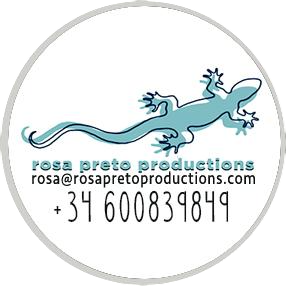Spain is a popular destination for audiovisual productions, offering stunning locations and excellent facilities. However, UK professionals planning to work in Spain must be aware of visa regulations and customs requirements for technical equipment. This guide provides an overview of the necessary documentation and procedures to ensure a smooth entry and successful production.
Visa Requirements for Audiovisual Professionals
Short-Term Work (Up to 90 Days)
British citizens do not require a visa to work in Spain for less than 90 days within a 180-day period. However, they must comply with specific administrative requirements:
- Foreigner Identification Number (NIE): Although a visa is not required, an NIE is essential for tax and administrative purposes if your clients are Spanish. It can be obtained before arrival at the Spanish Consulate in the UK or upon arrival at a local police station in Spain.
- Proof of Employment: It is advisable to carry documentation proving your employment or contractual agreement with a Spanish company or client.
Medium-Term Work (91-180 Days)
For projects lasting between 91 and 180 days, UK professionals must obtain an ESA Visa, specifically designed for artists, technicians, and audiovisual professionals. The application requires:
- Completed National Visa Application Form
- Recent Passport-Sized Photograph
- Valid Passport (at least four months’ validity)
- Proof of Professional Engagement (contract with a hiring company)
- Evidence of Participation in an Audiovisual Project (detailing the activity duration)
- Employer’s Declaration (confirming compliance with Spanish labor and tax laws)
- Health Insurance (covering all risks equivalent to Spanish public health coverage)
- Proof of Residence in the Consular District
- Identification of Legal Representative (if applicable)
Applications should be submitted well in advance at the relevant Spanish consulate, as processing times may vary.
Importing Technical Equipment from the UK to Spain
Bringing professional photography and audiovisual equipment into Spain requires proper documentation to ensure smooth customs clearance.
Required Documentation
- Valid Passport: All travelers from the UK must present a valid passport.
- Equipment Declaration: A detailed inventory of the equipment, including serial numbers and estimated value, helps with customs clearance and proves ownership.
- ATA Carnet: This international customs document allows the temporary import of professional equipment without paying duties or taxes. It simplifies border procedures and is highly recommended.
- Customs Checks: Since Brexit, the UK is classified as a third country, meaning all equipment may be subject to customs inspections when entering Spain.
- Equipment Insurance: Ensure your equipment is properly insured against damage or theft.
- Special Permits for Certain Equipment: If you plan to bring drones or broadcasting equipment, check specific Spanish regulations and obtain necessary permits in advance.
Conclusion
For UK audiovisual professionals working in Spain, understanding visa and customs regulations is crucial to ensuring a smooth production process. While short-term stays do not require a visa, obtaining an NIE is essential if you work for Spanish Companies. For projects over 90 days, securing the correct visa well in advance is necessary. Additionally, importing technical equipment requires proper documentation, with an ATA Carnet being the best option for temporary imports. By preparing these documents ahead of time, professionals can avoid delays and focus on delivering high-quality audiovisual content in Spain.
